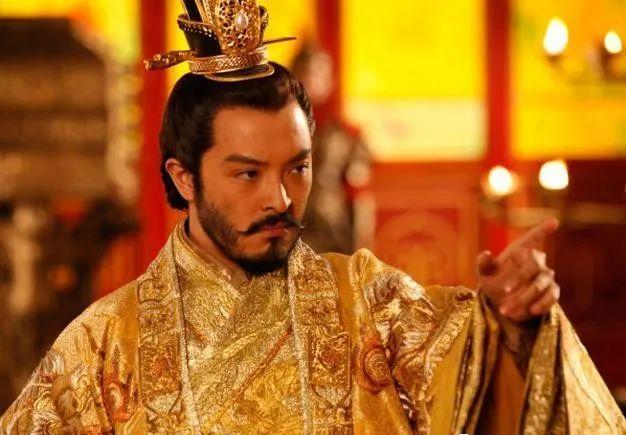Many people are confused about the ancient kings' nicknames and temple numbers. For example, the Sui Dynasty Emperor, many people think that this is his temple number, but in fact it is not.
Yang Guang's temple name is "Shizu", and the nickname is "Emperor Jiao". Many people think that the titles are a long string, such as the Qianlong Emperor's nickname, that is, "Fa Tianlong Yun Zhi ChengXian Jue Body Yuan Li Ji Shi Wen Fenwu Qin Ming Xiao Ci Divine Pure Emperor". In contrast, the Sui Emperor only had one word, which was really a bit miserable.

The title is a kind of value assessment given by posterity based on the life deeds of the deceased, "the deeds of the deceased are also determined by the deeds of the deceased, and the good and evil deeds of the deceased are accumulated in their lives." The tantra is that its appraisal title includes 谥和号, which is a word with a specific meaning to indicate a summative evaluation of the deceased's life.
The history of the name can be traced back to the zhou mu king of the Western Zhou Dynasty. According to the study of bronze inscriptions in the Western Zhou Dynasty, around the time of King Mu of Zhou, the practice of giving a tribute to the deceased of higher status or status was more common. The number of words in length and length is uncertain, some are like the Sui Emperor, with only one word, and some are like Qianlong, and it is also common for them to have as many as twenty words.
According to the thinking of our ancients, it has always been the order of "heaven and earth kings and masters", and if people with low status evaluate people with high status, it is not in accordance with the rules. Why, then, did such a mechanism be formed for courtiers to evaluate the emperor?
From the Western Zhou Dynasty to the Spring and Autumn Warring States period, the system of the imperial law was widely implemented until the Qin Dynasty, when Qin Shi Huang believed that the title of "son and father and subject to the king" was suspected, so it was abolished. But in the Western Han Dynasty, Liu Bang restored this system again.
For the ancients, when they have reached a very high position, the general pursuit at this time is not the immediate interests, but the posthumous name. The purpose of "flowing through the centuries" may not be attractive in the eyes of modern people, but for ancient people, especially ancient scholars, the attraction is very large.
Looking at the imperial titles of successive dynasties, since the Tang Dynasty, the titles have become formal, often playing the role of supplementary explanation. However, although the Han Dynasty restored the system of honor, the supreme image of the emperor could not be damaged, and the emperor was extremely respectful of his ancestors, and the emperor became a tool for "honoring the name". The courtiers were also intimidated by the power of the imperial power, and at the same time, in line with the concept of the community of honor and disgrace of the monarch, "the righteousness of the subjects of the people, do not want to praise their kings, cover up the evil and promote the good."
The titles of Tang emperors were generally five or seven characters, extending from the Song Dynasty to sixteen characters, ming dynasty seventeen characters, and Qing dynasty to twenty-four characters. After the Tang Dynasty, the nickname changed from "Spring and Autumn Great Righteousness" to a tool of praise. Most of the officials responsible for preparing the tribute to Emperor Daxing were from the Imperial Examination and Scholar Branch, and they were mostly known for their literary ability, so the emperor's edicts would praise the merits of the king, full of praise, from an evaluation of merit to a stage for blowing "rainbow farts".